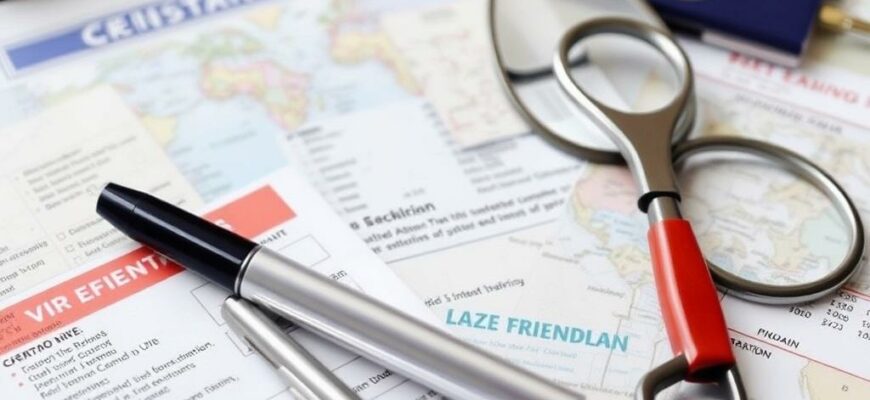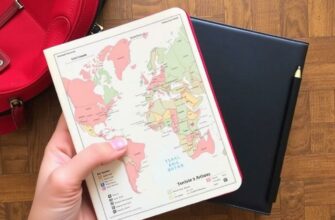Traveling or moving abroad feels like opening a new chapter: excitement, fresh routines, and the occasional culture shock. But between booking flights and picking neighborhoods, there’s a less glamorous but absolutely crucial task waiting for you — sorting out your documentation. Whether you call them visados or visas, seguros or insurance, permisos or permits, the paperwork you carry and the permissions you secure will shape your experience abroad. Get it right, and you’ll travel with confidence; get it wrong, and a small oversight can cost you time, money, and peace of mind.
Why documentation matters — more than stamps and signatures
People often treat visas, insurance policies, and permits as boxes to tick before departure. In reality they function as keys: they unlock access to entry, health care, work, driving, and long-term stability. A visa determines whether you can enter and how long you may stay. Insurance decides whether a sudden illness or mishap becomes a minor inconvenience or a financial disaster. Permits decide whether you can make money, rent legally, or drive a car without trouble. These documents are the safety rails that let you focus on living, not firefighting bureaucratic emergencies.
Beyond the functional, documentation also signals legal status and trust. Employers, landlords, and government agencies look at your paperwork to assess risk and compliance. Good documentation builds credibility and often makes day-to-day life smoother: opening a bank account, registering for utilities, or enrolling a child in school all become far easier when your paperwork is solid and current. This is why investing time up front to understand requirements pays dividends later.
Visas and visa types — choosing the right path
“Visa” is a broad word that covers many different travel permissions. The type of visa you need depends on your purpose: tourism, business, study, work, family reunification, or long-term residency. Each type has its own eligibility criteria, required documents, validity period, and conditions. Some visas allow multiple entries, others are single-entry. Some lead to residency and work rights; others only allow a temporary stay.
Below is a brief outline of common visa categories you’re likely to encounter when planning travel or a move abroad:
Common visa categories and what they mean
- Tourist visa (visitor visa): Short stays for leisure or family visits. Usually prohibits paid work.
- Business visa: Short-term business activities — meetings, conferences, negotiations — often not for local employment.
- Student visa: For full-time study at an accredited institution. May include limited work rights depending on the country.
- Work visa: Tied to employment, often requiring employer sponsorship and demonstrating job market tests or qualifications.
- Family reunification/residence visa: For spouses, partners, or dependents joining a resident or citizen.
- Digital nomad/remote work visa: Newer category allowing remote workers to live abroad for months or years without local employment.
- Permanent residency and citizenship pathways: Longer routes that may start with temporary visas and lead to settlement and naturalization.
How to choose the right visa
Choosing the right visa starts with your purpose and timeline. Ask yourself: How long do I want to stay? Will I work locally? Do I plan to study? Will my partner or children join me? Once you answer these, consult official government websites for the destination country — embassies and consulates provide application lists, fees, and processing times. Because rules change, verify the information close to your application date and, when possible, use direct sources rather than third-party summaries.
Another key consideration is cost and processing time. Some visas are quick and cheap; others take months and require legal or employer help. Plan early and consider consulting immigration specialists for complex cases. Keep digital and physical copies of all submitted documents — passport pages, application forms, proof of funds, letters of acceptance or employment, and travel itineraries — and keep them organized by visa type and date.
Visa application checklist — a practical checklist
- Valid passport (check expiration; many countries require 6–12 months validity beyond travel dates)
- Completed visa application form(s)
- Passport-sized photos meeting embassy specifications
- Proof of purpose (invitation letter, acceptance letter from university, employment contract)
- Financial proof (bank statements, sponsorship letters)
- Proof of accommodation (hotel booking, rental agreement, host letter)
- Travel itinerary and return ticket proof
- Health documents (vaccination certificates where required)
- Application fee payment receipt
- Criminal record checks or police certificates (if requested)
- Translations and notarizations of documents if required
Insurance — the safety net you’ll be glad you bought
Insurance is often the unsung hero of travel and relocation. There are several kinds you should consider: travel insurance, health insurance, expatriate medical coverage, car insurance, and liability coverage. Each protects against different risks. Travel and medical emergencies abroad can be expensive, and having appropriate coverage prevents personal crises from becoming financial catastrophes.
Types of insurance to consider
- Travel insurance: Short-term coverage for trip cancellations, delays, lost baggage, and emergency medical expenses during a trip.
- Health insurance (local or international): Ongoing medical coverage for expats. International plans are portable and useful for frequent movers.
- Expatriate medical insurance: Comprehensive medical and evacuation coverage tailored for long-term expatriates.
- Medical evacuation and repatriation: Covers transport to appropriate medical facilities or returning remains in case of death.
- Car insurance: Mandatory in most countries for legal driving; covers liability and optional collision or theft protection.
- Liability insurance: Protects you if you cause injury or damage to others while abroad; renters’ or homeowners’ policies may cover some risks.
Choosing coverage depends on where you’re going, how long you’ll be there, and whether you’ll be employed locally (which might provide local insurance). Independent travelers and digital nomads often prefer international plans that offer broad network access, while families settling in one country may choose local national health systems or private national insurers.
Understanding policy terms — what to watch for
Insurance policies include terms and exclusions that can be tricky. Read carefully to know what’s covered and what’s not. Common red flags include:
- Pre-existing condition exclusions: Many travel plans exclude care related to known conditions unless you buy a waiver.
- Adventure activity exclusions: Extreme sports or certain activities may be excluded or require an add-on.
- Geographic limits: Some policies exclude certain countries or regions.
- Exclusion of long-stay or residency events: Travel insurance may be invalid if you’re living abroad for months without declaring residency.
- Sub-limits on baggage or electronics: High-value items may require separate cover or declaration.
If evacuation or intensive care is a concern (for remote destinations or high-risk activities), verify the medical evacuation clause and provider network. For long-term stays, compare the total cost and benefits of private local health insurance versus international plans or contributions to national health systems.
Sample insurance comparison table
| Insurance Type | Main Coverage | Best For | Typical Limitations |
|---|---|---|---|
| Short-term travel insurance | Trip cancel/delay, emergency medical, baggage | Tourists and short business trips | Limited duration, pre-existing condition exclusions |
| International health insurance | Comprehensive medical, hospitalization, repatriation | Frequent travelers, digital nomads, expats | Higher cost, may exclude local public care |
| Local national health insurance | Primary and specialist care under national scheme | Long-term residents and citizens | Variable coverage quality, waiting times |
| Car insurance | Liability, collision, theft, roadside | Drivers abroad | Varying deductibles and exclusions |
Permits — the permissions that let you live and work
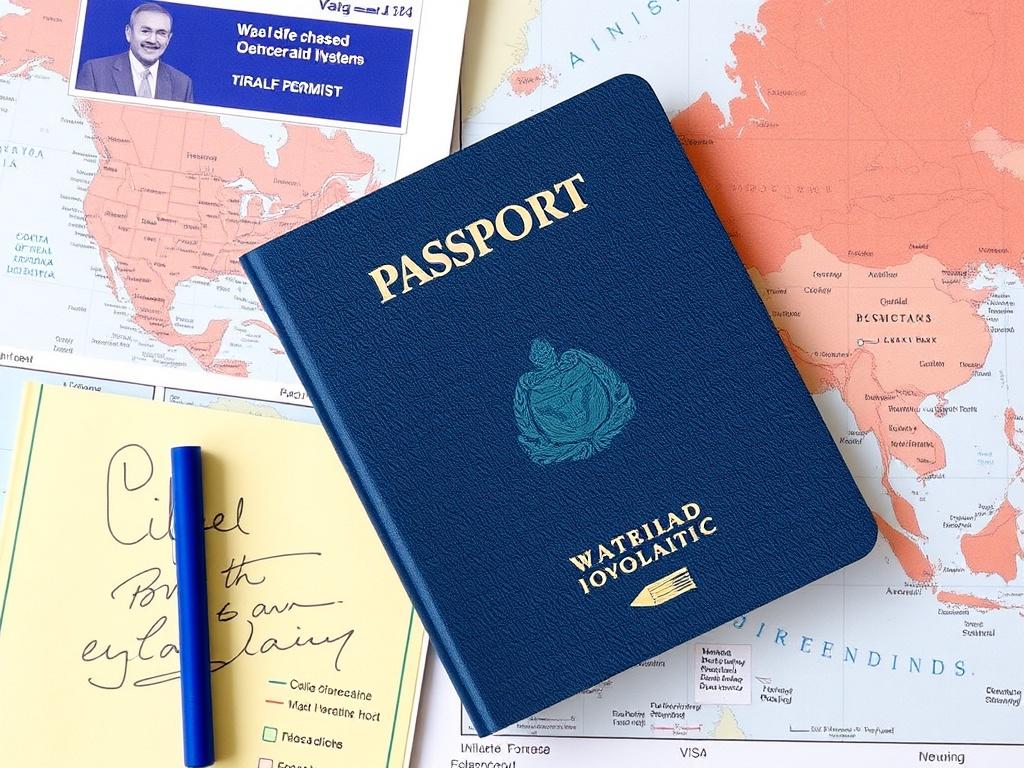
Permits are the legal permissions you need beyond a visa. Depending on the country, a visa might get you inside the borders, while a permit enables ongoing activities: a work permit allows employment, a residency permit gives long-term legal status, and a driving permit lets you navigate the roads. Often, permits must be applied for once you arrive, and processing timelines vary.
Work permits and employment authorization
A work permit is often tied to a specific employer and role. In many countries, employers sponsor foreign hires by filing paperwork proving there’s no suitable local candidate. Other countries issue points-based visas that allow skilled migrants to apply for jobs themselves. If you’re seeking to work abroad, understand whether you need employer sponsorship, what documentation proves your qualifications, and whether your family can also receive dependent permits.
Temporary work permits may be renewable and sometimes lead to permanent residency. If your objective is long-term settlement, choose a pathway that keeps options open for future residency and reunification with family members.
Residence permits and registration
Many countries require foreigners staying longer than a certain period (often 90 days within 180 days, or other thresholds) to register with local authorities and obtain a residency permit or certificate. This registration process is important for taxes, social security, healthcare enrollment, and official identification. Some places issue identity cards to residents; others stamp passports. Missing registration deadlines can carry fines, restrictions on services, or difficulties when renewing documents.
Driving permits — local licenses and international driving permits (IDPs)
If you plan to drive, find out whether your home-country license is valid, whether you need an International Driving Permit (IDP), or if you must obtain a local license after arrival. Some countries accept foreign licenses for short stays but require conversion or local testing for long-term residents. Rules about renting cars vs. buying, vehicle registration, and insurance often depend on your visa/residency status.
Special permits — business, building, and activity-specific permissions
Depending on your life plans, you may also face other permitting needs: business permits for entrepreneurs and freelancers, building permits if you buy property and renovate it, and permits for activities such as teaching, clinical practice, or religious ministry. These are often regulated professions that require licensing bodies’ recognition of your qualifications or completion of local tests.
Organizing your documentation — systems that save stress
Good organization makes the difference between a smooth application and a panicked scramble. Start by making a document inventory and scanning everything. Keep originals in a safe place (hotel safe, locked cabinet), and carry copies and digital backups in secure cloud storage. Use a simple naming convention and folder structure so you can find documents quickly — for example, /Visas/Spain/Student/2025 or /Insurance/Medical/Policy123.pdf.
Digital vs. physical copies
Most authorities accept digital submissions, but you should still travel with printed copies of crucial documents: passport photo page, visa page, travel insurance card, and printed confirmation of long-term visas or permits. Digitally, encrypt sensitive files or use secure storage; public Wi-Fi and shared computers are potential risks when accessing important documents. A small binder with original essentials and a secondary set of photocopies is often the easiest low-tech solution.
What to keep on your phone
- Scanned passport and visa pages
- Policy numbers and emergency contacts for insurance
- Appointment confirmations and ticket receipts
- Phone numbers and addresses for embassies and consulates
- Local emergency numbers and medical facility addresses
Store these in a secure notes app or encrypted folder and set appropriate backups. Make sure family members or a trusted friend have access to emergency contact info if something happens to you.
Common pitfalls and how to avoid them
Even experienced travelers make mistakes. Here are the most common pitfalls and practical fixes:
Pitfall 1: Ignoring passport validity rules
Many countries require passports to be valid for six months beyond your intended departure date. Always check and renew early. A last-minute renewal could derail your plans.
Pitfall 2: Relying on outdated information
Immigration laws change. Embassy websites are the authoritative source. When in doubt, contact the consulate directly or use their official phone or email channels. For complicated cases, a qualified immigration lawyer or accredited consultant can save time and frustration.
Pitfall 3: Underinsuring or buying the cheapest policy
Cheap policies can leave gaps. Compare coverage limits, exclusions, and emergency support availability. Read reviews and check if the insurer has an English-speaking emergency hotline if you’re in a non-English-speaking country.
Pitfall 4: Misunderstanding work and tax obligations
Holding a visa that allows work does not automatically set up your tax or social security arrangements. Understand your obligations early: declare income, register for social security, and keep good records for tax season. Fines or retroactive contributions can be costly.
Emergency planning — documents you need when things go wrong
Emergencies can happen anytime. Knowing what to do and where to file paperwork can minimize disruption. Prepare an emergency folder accessible to a trusted contact that contains copies of your passport, visa, insurance policy, power of attorney or emergency authorization, and contact details for your home country’s embassy or consulate.
Key steps in an emergency
- Contact local emergency services first, then your insurance provider to report the incident.
- Notify your embassy or consulate for assistance with legal issues, lost passports, or repatriation.
- Keep receipts and records of expenses for insurance claims and potential tax deductions.
- If arrested or detained, ask to contact your consulate and avoid signing documents without legal advice; consular services can provide a list of local lawyers.
Special cases — students, families, retirees, and business owners
Different life stages and goals create distinct documentation needs. Students must secure acceptance letters, health insurance, and often proof of financial means. Families need dependent visas and often proof of relationships (marriage and birth certificates). Retirees may look for special retiree visas requiring proof of income or pension. Entrepreneurs need business registration, tax IDs, and possibly investment-based residency permits.
Student-specific notes
Students should confirm whether their visa permits part-time work and what academic registration steps tie into their residency status. Universities often assist with student visas, local registration, and health insurance options, so make use of those resources early.
Family documentation
Marriage and birth certificates often need apostilles or certified translations. If you’re combining surnames, changing names, or adopting a child abroad, check local rules and how those actions affect immigration status and documentation.
Business and investment routes
Entrepreneurs often face a dual challenge: immigration rules and business compliance. Business visas and investor visas typically require significant documentation about capital, business plans, job creation, and sometimes local partner arrangements. Keep careful accounting records and legal documentation, since authorities may audit applications to verify claims.
Practical timelines and planning tips
Start early. A good rule of thumb is:
- Passport renewal: at least 6 months before expiry
- Visa research and application: 3–6 months for complex visas, 4–8 weeks for simpler tourist visas
- Insurance: purchase travel insurance at booking for trip cancellation protection; secure long-term health insurance before arrival for residency-based plans
- Work and residency permits: begin employer or lawyer-assisted paperwork as soon as an offer is accepted
- Document translations and apostilles: allow several weeks if needed
Starting early gives you time to correct errors, obtain missing documents, and respond to requests from immigration authorities. Keep a calendar of deadlines and set reminders for renewals; many permits require timely renewals or risk expiration and fines.
Useful resources and where to verify information
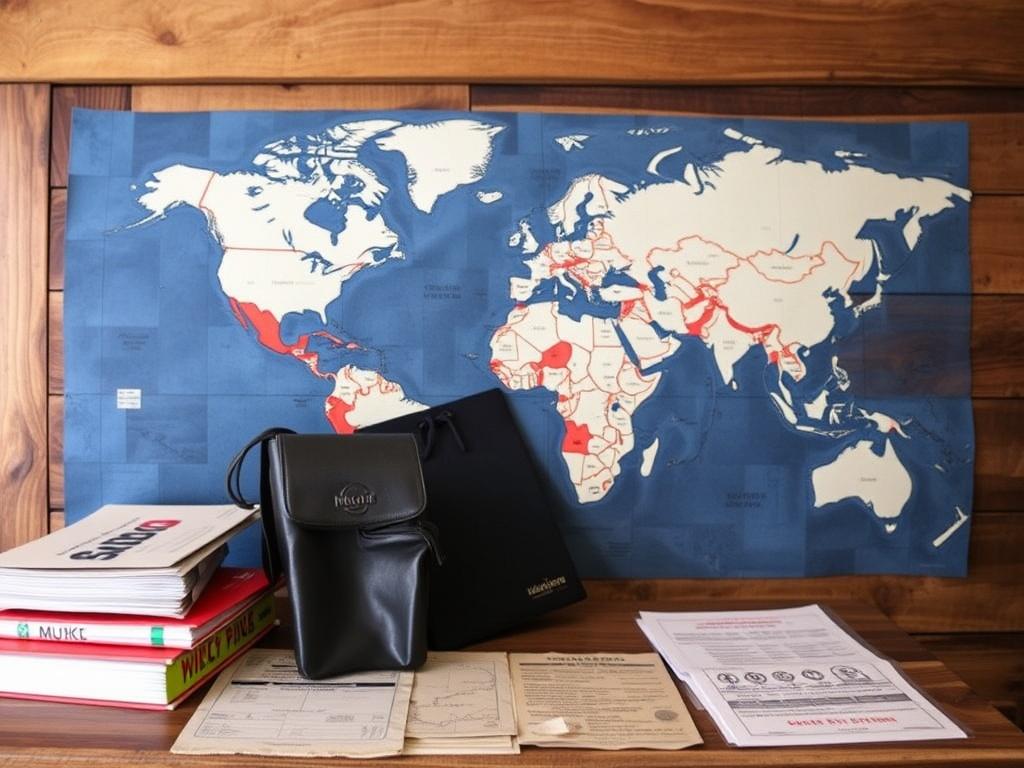
Your first stop should always be the destination country’s official immigration website, embassy or consulate. Beyond that, reputable international organizations and expat forums can offer guidance and shared experiences, but treat them as secondary sources. Professional immigration advisors, licensed brokers, and legal counsel are worth the cost for complex cases like asylum, family reunification, or investor visas.
- Destination government immigration portals
- Official embassy or consulate websites
- International health insurance providers and comparison platforms
- University international offices for student visa questions
- Expat community groups for lived experience and local tips
Practical packing list for paperwork
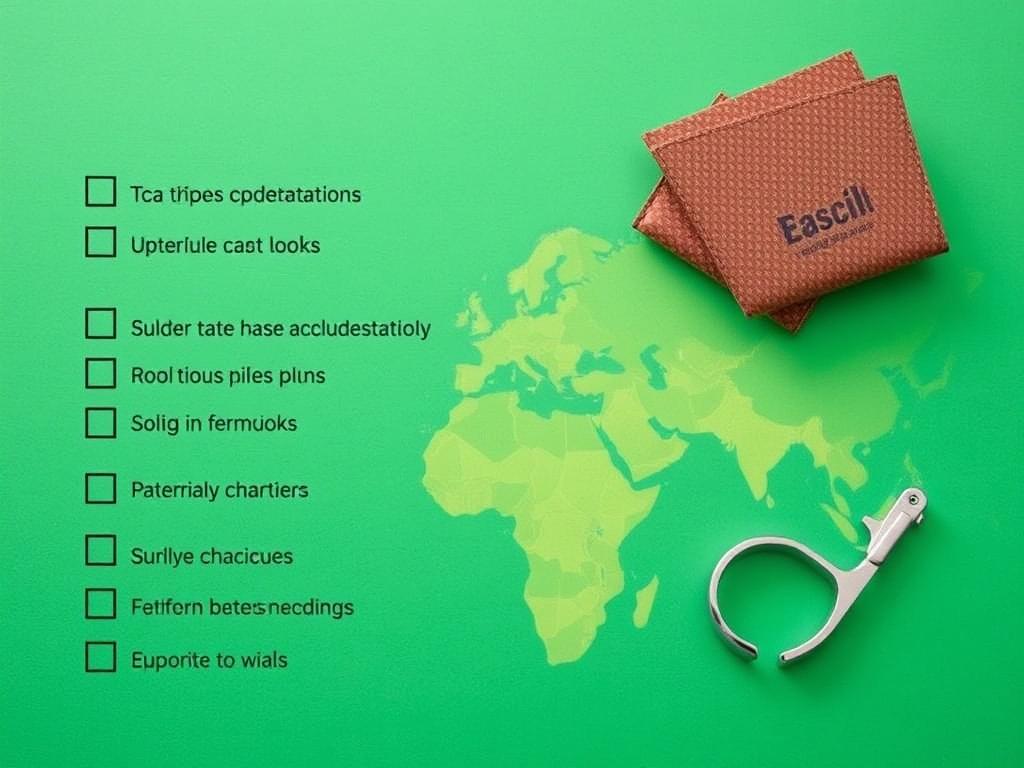
| Item | Why you need it |
|---|---|
| Passport (original) | Primary travel and ID document |
| Printed visa/permit pages | Proof of legal entry and status |
| Travel insurance card & policy summary | Quick reference in emergencies |
| Local contact and embassy numbers | For assistance and emergencies |
| Copies of critical documents (securely stored) | Backup if originals are lost or stolen |
How to stay compliant and keep your status
Compliance is ongoing. Track visa expiry dates, renew permits on time, file local taxes if required, and keep your contact details and address up to date with immigration services. If your circumstances change — marriage, children, employment changes — update your permits and notify relevant authorities. Non-compliance can lead to fines, deportation, or future entry bans.
Finally, maintain good records of interactions with authorities — dates, names of officers, reference numbers, and copies of submitted forms. These details are invaluable if disputes arise or timelines become unclear.
Conclusion
Managing visas, insurance, and permits may not be the most glamorous part of travel or living abroad, but it’s the foundation that keeps everything else functioning. By understanding visa categories, choosing the right insurance, organizing permits, and staying proactive about renewals and compliance, you protect your health, finances, and freedom to live where you choose. Start early, rely on official sources, keep meticulous records, and don’t hesitate to seek professional help for complicated situations. With the right paperwork in place, you’ll spend less time worrying about red tape and more time enjoying your adventure abroad.

